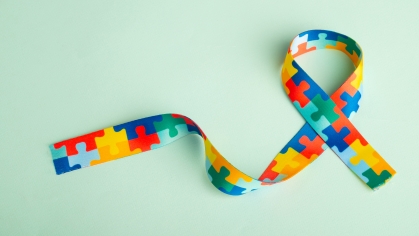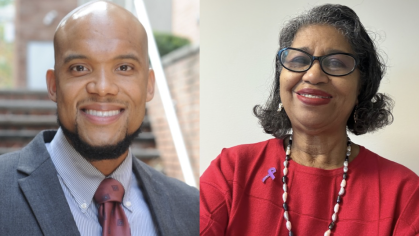IIDEA Research Spotlight: Assistant Professor of Teaching and Director of Student Affairs Natalie Moore-Bembry
Dr. Natalie Moore-Bembry is an assistant professor of teaching and director of student affairs at Rutgers School of Social Work. Her scholarly and dissemination work is focused on cultural humility, micro-aggressions, racial trauma, eliminating racial discrimination, and related DEI issues. She is a very active presenter in local, state and national venues, and has been asked to provide training and technical assistance to many organizations, including RUSSW and other Rutgers schools and divisions. Dr. Moore-Bembry gives a glimpse into some of the work relating to Inclusion, Intersectionality, Diversity, Equity and Advancement (IIDEA) that she's recently conducted.

Tell us about one specific article or dissemination effort that relates to DEI that you’ve worked on recently.
I have had the opportunity to work on a few anti-racism and DEI articles over the last year. The one that still resonates with me was an article I wrote for NASW-NJ Focus Magazine entitled To Thine Own Self be True: A Social Work Educator's Response to Racial Trauma. This article shared my experience and beliefs in the academy and how my beliefs are impacted by the circumstances and situations. My article presents a small glimpse into understanding the need for the Beloved Community at Rutgers University.
Why did you do this study/dissemination effort?
I have engaged in this type of dissemination and research for a number of years but this article was written from a place of hurt and healing. This article allowed me to be vulnerable and authentic but to also address issues I know that others have experienced and may continue to struggle with but have not felt comfortable sharing their thoughts and feelings. I wanted to share me.
How does it connect with the principles of IIDEA?
My article encourages everyone to examine our environments to ensure we are eliminating marginalization and creating spaces and climates that support authenticity and participation. Whenever I share, whether it is a presentation, training, or article, I share a piece of me and my intersectionality is apparent. I cannot hide my race, my culture, my professional and personal roles. I also acknowledge that I have been educated and socialized in a system that continues to marginalize and discriminate against others and must actively check myself so that I do not continue to perpetuate bias and discrimination. I appreciate opportunities like these to share my worldviews, when we begin to understand ourselves, it helps us to better understand others, then we can begin to move towards equity. Equity leads to advancement when we are genuine in our approach and move from functioning as performative allies to becoming proactive co-conspirators.
What are the implications of your work for social policy, practice, or research?
I understand that my work is only touching the surface of the iceberg. However, we must encourage genuine change amongst ourselves and the systems in which we operate. We need to reach below the surface of the water to highlight the interpersonal, intrapersonal, and systemic issues that continue to keep us bound to the status quo. The more we are educated and engage in critical self-reflection the more we will see genuine change in individuals that will translate into lasting institutional change and accountability. The change we seek must begin with us!
What is the value of this work? Why is it important?
Our nation has been in racial reckoning for a few years now. However, the issues we are seeing are not new, these issues have persisted since the inception of our country. It is imperative that we move towards change. We cannot continue to function in status quo and hope for better. We must take action! I hope this will be the spark that one needs to shift their mindset and move towards change. Many ask, well what can I do? Start with you, reflect on who you are, your values, beliefs, consider how those thoughts and actions impact others. When you see you, it is easier to see others.
This story was created in partnership with Rutgers School of Social Work's Inclusion, Intersectionality, Diversity, Equity, and Advancement (IIDEA) Committee in support of our commitment to diversity, equity, and inclusion.



